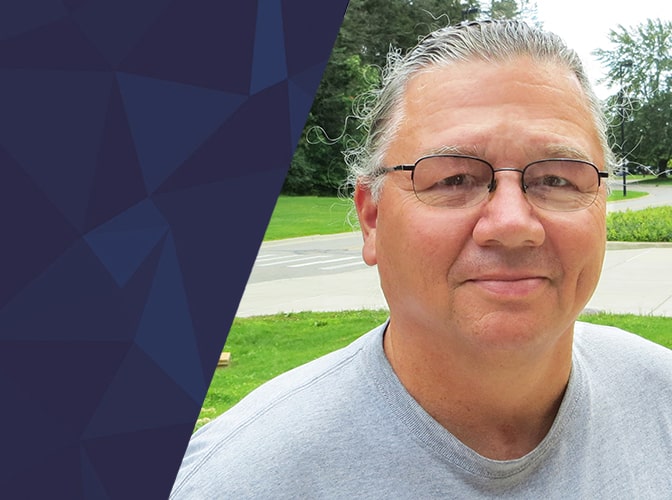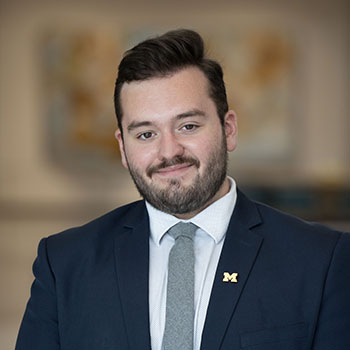
CEE Lab Technician Bob Spence retires after long career
A Q&A with Lab Technician Bob Spence, who is retiring after 31 years in the Department of Civil and Environmental Engineering.

A Q&A with Lab Technician Bob Spence, who is retiring after 31 years in the Department of Civil and Environmental Engineering.

After 35 years at the University of Michigan, including four years at Michigan Media and 31 years in the Department of Civil and Environmental Engineering (CEE), Lab Technician Bob Spence is retiring. During his career, he helped countless CEE students and faculty test their research in the department’s labs.
Spence: CEE gives you challenges – especially working in this technical job. There’s been a lot of diversity in the projects that I’ve worked on, and I’ve had to rely on other technicians and myself to fill the gap between “this is what we want” to “this is how it should work” to actually getting it to work.
Part of the challenge is that sometimes you have nothing to go off because this has never been done before. We’ve done a lot of work with fiber concrete in the last 20 years, from steel fiber concrete to poly fiber concrete to all different kinds of fiber concrete. We were one of the first ones to be able to put a long poly fiber concrete in a heavily steel-reinforced, very narrow frame form. Nobody else had been able to do that.
Spence: You have to keep yourself – or at least I’ve tried to keep myself – attuned to a wide variety of things. I love to figure out how things work, so that has helped me here, and that’s an interest I continue by doing other things. I’m a gearhead: I love cars, I love anything with wheels, and I’ve been able to apply some of the mechanical workings that I’ve learned outside of here, and vice versa. I’ve been able to go and talk to construction friends of mine and ask, “How do you guys do this?” and then try to apply what I hear. So there’s been a lot to learn – you learn what the students learn, you learn what their research shows you, and you learn how to figure out what they need done in the lab.
Spence: When I worked at Michigan Media, I edited the audio for the football commercials for one year. That was editing the old-fashioned way, with a real magnetic tape and a razor blade and tape.
With [CEE Emeritus] Professor Goel, we did a steel bracing system for a hundred-year-old building out in Seattle. Just before we finished they got hit with an earthquake. We actually had to wait before doing any other work to see if the building was still standing. It was still standing, and that system was finally installed in the building.
Spence: I would love people to understand that we’re here to get the job done. So no matter what it takes to get it done, whether I have to be a plumber, an electrician, a carpenter, a welder, a machinist, a mechanic, whatever – we need to get the job done. Lab techs need to have the attitude that people come into the lab with something, and they may have no idea how to get the project started, but we are here to do whatever it takes to get the project done.
The other thing that I would love people to understand is that yes, it’s their project out there that we’re testing, but whether they fail or whether they’re successful, I feel the same failure or success. I didn’t do all the math, I didn’t do all the inner workings, but we got the project working, and that’s what I feel good about.
Spence: One change is that the number of support personnel has increased dramatically. When I started here there were three technicians, and four or five staff people in the office, and that was it.
Another change is computers. We never had computers at our desk for a long time. It used to take two or three days to do what we do now in five hours. The data acquisition is much, much faster.
Spence: A partner and I started the Saline Church of the Nazarene last year in July so my plans now are going to be working full-time to get the church noticed and hooked to the community. That’s my big goal.
Spence: Diversity. I started with video and audio, and worked my way to building structures – working with concrete and steel, welding and fabricating. I worked with a wide variety of students, never really doing the same project twice.
That’s been the beauty of it; you can’t get bored here because you are going to do something different. It’s kind of like Michigan weather – if you don’t like it, wait a few minutes and it will change.

Marketing Communications Specialist
Department of Civil and Environmental Engineering